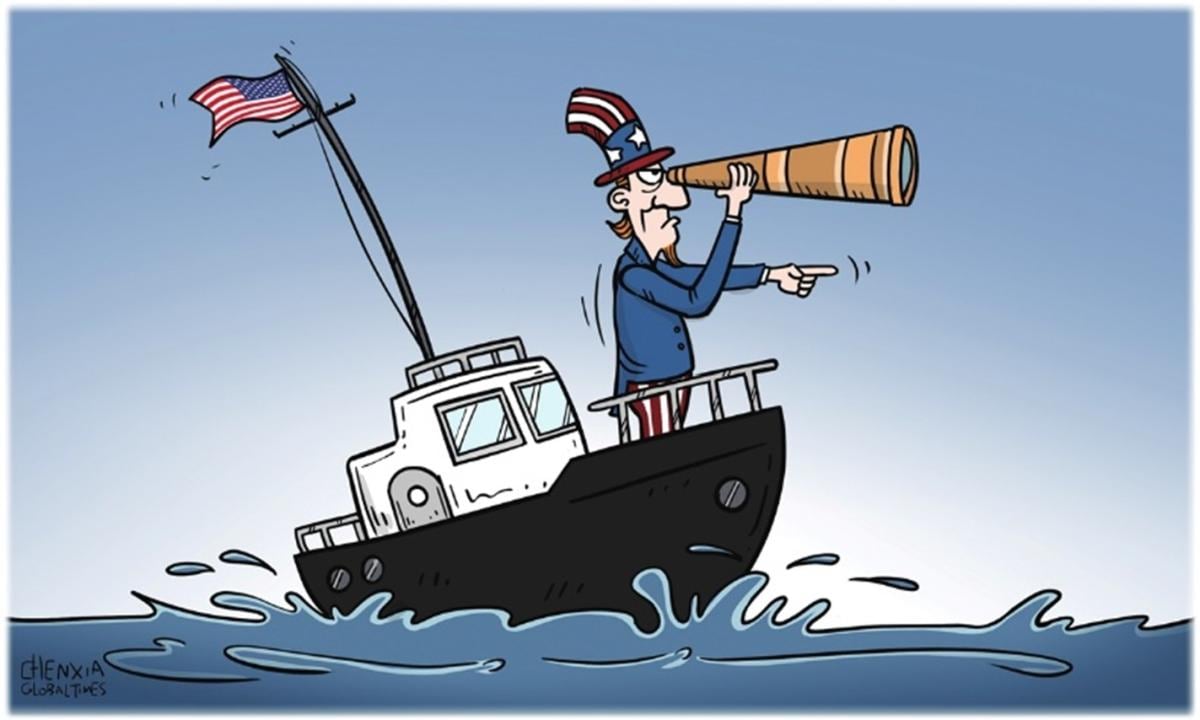In a June 13, 2022 article in the Chinese Communist Party (CCP) mouthpiece Global Times, titled "U.S. Attempt To Weaponize The Sea Against China Brings Unprecedented Maritime Challenges," Wu Shicun, president of the Hainan Province-based National Institute for the South China Sea Studies, discussed the June 10-12, 2022 Shangri-La Dialogue, Asia's premier defense summit, that took place in Singapore.
Judging from the speeches at the summit by U.S. Secretary of Defense Lloyd Austin and Japanese Prime Minister Fumio Kishida, wrote Wu Shicun, the "maritime environment surrounding China" is set to encounter "unprecedented challenges." He added that the U.S. will be relying on bilateral military alliances in the western Pacific, including the East China Sea and the South China Sea, the Quad in the Indian Ocean, and AUKUS in the South Pacific, in "a bid to strategically and militarily contain China."
Wu Shicun suggested that China should, in order to face the new challenges, respond strategically and tactically though "control, countermeasures, and hedging."
It is worth noting that at the summit, Chinese Defense Minister Wei Fenghe addressed the issue of Taiwan,[1] calling the U.S. a "bully." He said: "For the sake of unification, the U.S. fought the war between North and South. China is most unwilling to go through a civil war like that, but will resolutely smash any schemes for Taiwan independence. If anyone dares to split off Taiwan, we will not hesitate to fight, will not flinch from the cost, and will fight to the very end." He then added: "A certain country has violated the principle and commitments on 'one China' regarding the Taiwan issue. Taiwan independence is a dead end, a delusion. Leaning on the support of foreigners will not succeed. Forget about it."
Commenting on Secretary of Defense Austin's remarks at the summit, [2] Wei said: "No one, and no country, should impose its will on others, or bully others under the guise of multilateralism… We notice Secretary Austin's remarks on the U.S. Indo-Pacific strategy. To us, the strategy is an attempt to build an exclusive, small group in the name of a free and open Indo-Pacific, to hijack countries in our region and target one specific country. It is a strategy to create conflict."[3]
Below is Wu Shicun's article in the Global Times:[4]

(Source: Chen Xia/Global Times)
'China's Maritime Development Space Will Be Further Squeezed'
"The Shangri-La Dialogue resumed from June 10 to 12 in Singapore following a two-year hiatus. Judging from the deliveries of U.S. Secretary of Defense Lloyd Austin and Japanese Prime Minister Fumio Kishida at the security forum, as well as some related information, the maritime environment surrounding China is set to experience new characteristics and encounter unprecedented challenges.
"First, the trend of militarization and confrontational groupings promoted by the U.S. has accelerated. When delivering a speech outlining the administration's China policy days ago, U.S. Secretary of State Antony Blinken said 'the Biden administration's strategy can be summed up in three words - 'invest, align, compete.''
"At the Shangri-La Dialogue, Austin underlined the Quad and AUKUS, as well as the U.S.' alliance with Japan, the Philippines and South Korea. These indicate that the U.S. will rely on bilateral military alliances in the western Pacific including the East China Sea and the South China Sea, the Quad in the Indian Ocean, and AUKUS in the South Pacific, in a bid to strategically and militarily contain China.
"In terms of their means to deal with China, in addition to the traditional use of bases, joint exercises, intelligence collection, and freedom of navigation operations, new military technologies and warfare styles such as unmanned aerial vehicles, artificial intelligence, and hypersonic equipment may also be put into use.
"Furthermore, given that both the Quad and the AUKUS are aimed at containing China, the possibility that these two mechanisms will eventually converge over time cannot be ruled out. In fact, as long as Japan is wooed into AUKUS or the UK joins the Quad, the integration of the two mechanisms will be realized.
"Second, China's maritime development space will be further squeezed, with relevant activities subject to increased surveillance by the U.S. and its allies. The joint statement issued at the U.S.-ASEAN Special Summit in May, and the Austin address suggest a new level of commitment and deployment of US Coast Guard (USCG) forces to Southeast Asia.
"In particular, the U.S. has claimed to be taking action to uphold international laws and rules in 'gray zone,' including the 'unprecedented' deployment of USCG in the Asia-Pacific region. The target of such U.S. claims, while not explicit, is self-explanatory.
'China Can Actively Respond At Two Levels: Strategic And Tactical'
"Finally, various forms of maritime infringement activities will be more active than ever, and China will face more severe challenges to safeguard its maritime rights. The U.S. policy of forcing countries to 'take sides' in the South China Sea, its support for the arbitration award, the USCG's cross-border law enforcement, and the upcoming cooperation between the U.S. and Southeast Asian countries in the fields of situational awareness and law enforcement will lead to more intense and frequent conflicts in the maritime field between China and neighboring and even extraterritorial countries around resource development and utilization, navigation safety, fishing activities and the maintenance of order.
"The form and content of the infringement will likely be the following: confrontation between China and Japan in the disputed waters of the East China Sea will see an upward trend as Japan strengthens its control of the waters around the Diaoyu Islands.
"In the Nansha Islands waters, oil and gas development will be on the rise; cooperation between maritime police of the claimant countries and the USCG in law enforcement will become the norm; some claimant countries will use the arbitration award as the basis for legal 'claim' and 'consolidation of rights' through domestic legislation, and submit new outer continental shelf claims or push the Commission on the Limits of the Continental Shelf to hear the submitted applications, the possibility of which cannot be ignored.
"Facing the new challenges, China can actively respond at two levels: strategic and tactical. Among them, at the tactical level, the means are no more than 'control, countermeasures and hedging.'
"For possible crises and conflicts in the military and law-enforcement fields, binding mechanisms and rules should be established; for oil and gas development and fishery violations in the disputed areas, diplomatic means and maritime actions should be used; legal actions based on arbitration awards should be counteracted by legal means in order to offset their possible negative consequences."
[1] Eng.chinamil.com.cn/view/2022-06/12/content_10162616.htm, December 12, 2022.
[2] Edition.cnn.com/2022/06/10/asia/us-defense-secretary-austin-speech-intl-hnk-ml/index.html, June 10, 2022.
[3] Youtube.com/watch?v=O_KMS5proso, June 12, 2022.
[4] Globaltimes.cn/page/202206/1267996.shtml, June 13, 2022.





